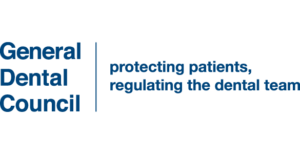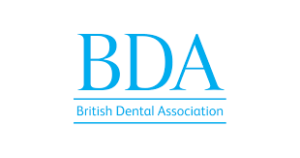Paediatric dentistry has two main components: preventative care at the dental practice and preventative care at home. As infant and toddler tooth decay have become increasingly prevalent in recent years, good dental oral care is essential to prevent that.
The first baby teeth that come into the mouth are the two bottom front teeth around 6-8 months old. Next to follow will be the 4 upper front teeth and the remainder of your baby’s teeth will appear in pairs along the sides of the jaw until the child is about 2 1/2 years old.
At around 2 1/2 years old your child should have all 20 teeth. Between the ages of 5 and 6 the first permanent teeth will begin to erupt. Some of the permanent teeth replace baby teeth and some don’t. Don’t worry if some teeth are a few months early or late as all children are different. Baby teeth are important as they not only hold space for permanent teeth but they are important to chewing, biting, speech and appearance. For this reason it is important to maintain a healthy diet and daily hygiene.
In some cases, a child’s early dental needs are best provided by a specialist in paediatric dentistry so called Pedodontist. At Restore Dental Group we provide outstanding specialised dental care for infants, toddlers and teenagers. We fully appreciate that some children dread going to the dentist and we all know, unpleasant dental appointments at a young age can have an impact on how you feel about the dentist for many years. So we do our utmost to provide a friendly environment where your son or daughter will feel comfortable from the moment they step through our front door and hopefully even enjoy the visit. We like to allow plenty of time at the initial consultation in order to get to know the children, assess their needs then introduce them to good dental habits (covering topics such as diet, oral hygiene and fluoride etc).

An early oral examination aids in the detection of the early stages of tooth decay, and early detection is essential to maintain oral health and modify atypical habits. At the same time, parents often receive a program of preventative home care , including information on finger and thumb sucking and dummy cessation; counselling on proper diet to promote healthy development of teeth and gums; and advice on how to prevent injuries to the mouth and teeth in young children.
In addition to visual examinations, the paediatric dentist provides thorough dental cleaning during each visit and removes the plaque that can build up between teeth and in other hard to reach places. The professional cleaning provides an additional tool on top of a good home care routine to keep smiles healthy.
When baby molars emerge (usually between the ages of two and three), the paediatric dentist may coat them with dental sealant. This sealant covers the hard-to-reach fissures on the molars, sealing out bacteria, food particles, and acid. Dental sealant may last for many months or many years, depending on the oral habits of the child. Dental sealant is an important tool in the fight against tooth decay.
The paediatric dentist is also able to monitor the child’s fluoride levels during routine visits. Often, a topical fluoride gel or varnish is applied to teeth after the cleaning. Topical fluoride remineralizes the teeth and prevents mineral loss, protecting tooth enamel from oral acid attacks. Some children are also given take-home fluoride supplements (especially those residing in areas where fluoride is not routinely added to the community water supply).
The Paediatric Dentist’s role changes once children enter adolescence. Recognizing the growing importance of appearance and self-image in their patients, paediatric Dentists emphasize preventative dental health with teenagers and, when appropriate, provide information on subjects such as wisdom teeth, tobacco use, sealants and oral piercing.
It is recommended parents to make biannual dental appointments for children, beginning from the time when the first tooth comes out. These two important yearly visits allow the paediatric dentist to monitor new developments in the child’s mouth, evaluate changes in the condition of teeth and gums, and continue to advise parents on good oral care strategies.
The paediatric dentist may schedule additional visits for children who are particularly susceptible to tooth decay or who show early signs of orthodontic problems.The condition of a child’s teeth can change fairly rapidly. Even if the child’s teeth were evaluated as healthy just six months prior, changes in diet or oral habits (for example, thumb sucking) can quickly render them vulnerable to decay or misalignment.
| Monday | 8am – 5pm |
| Tuesday | 8am – 5pm |
| Wednesday | 9am – 5pm |
| Thursday | 9am – 5pm |
| Friday | 8am – 5pm |
| Monday | 8am – 5pm |
| Tuesday | 8am – 5pm |
| Wednesday | 8am – 5pm |
| Thursday | 8am – 5pm |
| Friday | 8am – 5pm |
| Saturday | By Appoiuntment Only |
| Monday | 8am – 5pm |
| Tuesday | 8am – 5pm |
| Wednesday | 8am – 5pm |
| Thursday | 8am – 5pm |
| Friday | 8am – 5pm |








Restore Dental Group
Restore Dental Group
Restore Dental Group